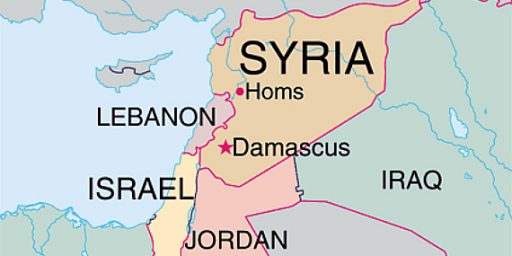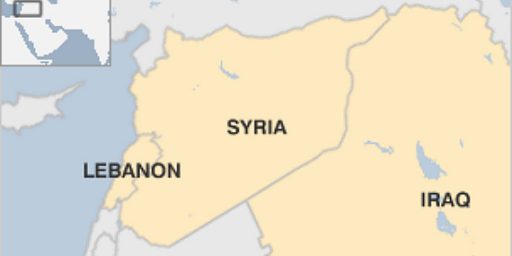Lebanon’s Hidden Dangers
Georgetown national security analyst Dan Byman warns of “Lebanon’s Hidden Dangers” in an online exclusive for Foreign Policy magazine.
Lebanon was an island of democracy in the Middle East until its civil war began in 1975. The war had many causes, including political meddling by Iraq, Syria, and other neighbors; the Israeli-Palestinian border war; a frozen political system that gave disproportionate power to the country̢۪s Christian minority; and a weak government that could not prevent minor spats from escalating into violence. The war ended only when Syria forcibly intervened, crushing dissent and imposing a brutal peace by deploying tens of thousands of troops and intelligence agents. Many Lebanese accepted Syria̢۪s presence as the price of stability. But today, their patience is at an end.
The good news is that most Lebanese recognize that a return to civil war would be disastrous. The bad news is that few steps are being taken to prevent it. Lebanon lacks an effective army capable of quelling violence between even small groups of fighters. The most effective fighting force in Lebanon is the terrorist organization Hezbollah, a force so powerful the Lebanese army could not hope to quash it. Indeed, Hezbollah is popular as well as powerful, making it doubtful that any Lebanese government would try to crush it even if it could. If Syrian troops pull out, those who stand to lose from a Syrian withdrawal may mobilize and arm themselves in self-defense, and Lebanon̢۪s various ethnic and sectarian communities may rearm their dormant militias, spinning the situation out of control. For example, to counterbalance Hezbollah, Damascus propped up its rival, a Shia militia known as Amal. But Amal would almost certainly be forced to cede its influence to Hezbollah in a system free of Syrian influence, encouraging the militia to turn to arms to preserve its power.
[….]
Watching freedom on the march in Lebanon gives us a heady feeling. But removing Syrian influence is only the first step in Lebanon̢۪s renewal. To prevent a recurrence of civil war, the United States, together with its European and Arab allies, must ensure that Lebanon̢۪s neighbors refrain from meddling in the country. Damascus in particular must be watched like a hawk. Even a complete withdrawal of Syria̢۪s troops and intelligence presence (the latter being almost impossible to verify) would not stop it from instigating violence. The international community must make the price of Syrian meddling prohibitive. Inevitable disputes about the distribution of power must be managed peacefully, with U.S. and international assistance.
A free Lebanon would likely be a democratic Lebanon, which, even if the resulting democracy is muddled, is better than allowing Syria to carry on as a harsh overlord. But the new democracy would be weak at first. Because it cannot crack down on groups like Hezbollah, that weakness is dangerous for Lebanon, the region, and the United States. Concerned states must build up the Lebanese government̢۪s strength first, with the expectation that it will exercise full sovereignty later. Otherwise, freedom will merely be a prologue to violence.
Byman’s caution is well taken. It’s not clear to me, though, how it is we limit the sovereignty of the transitional government. One can scarcely imagine that the Lebanese people, fresh from throwing out one foreign ruler, would be eager to cede power to outsiders. The political support for doing so by force is, quite rightly, zero. The best I can imagine, then, is a substantial international aid package–a Marshall Plan Lite–with substantial strings attached.
Update (1008): As if in answer to this, see, Protesters March on U.S. Embassy in Beirut
I stumbled on this via a link from Ed Morrissey, who was pointing to what is now the bottom portion of that story, the evacuation of Syrian intelligence outposts from Lebanon:
Also Tuesday, Syrian military intelligence agents vacated an office in Beirut, hauling furniture into three trucks protected by Lebanese police. A policeman at the scene said some Syrian agents have already left and the others were on their way out. A resident said about 20 agents left in a van and a car earlier Tuesday. However, Syrian agents remained at their main office for the Lebanese capital, located at Ramlet el-Baida on the edge of the city. A main demand of the Lebanese opposition has been the evacuation of Syrian intelligence officers, a widely resented arm through which Damascus controlled many aspects of Lebanese life.
Ed has some interesting analysis of what that might mean.



